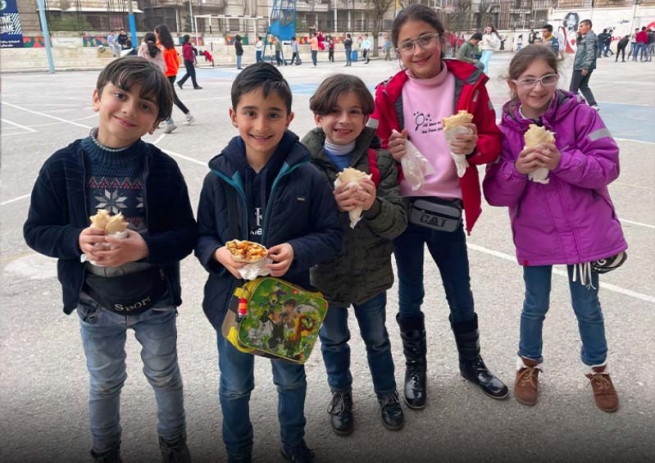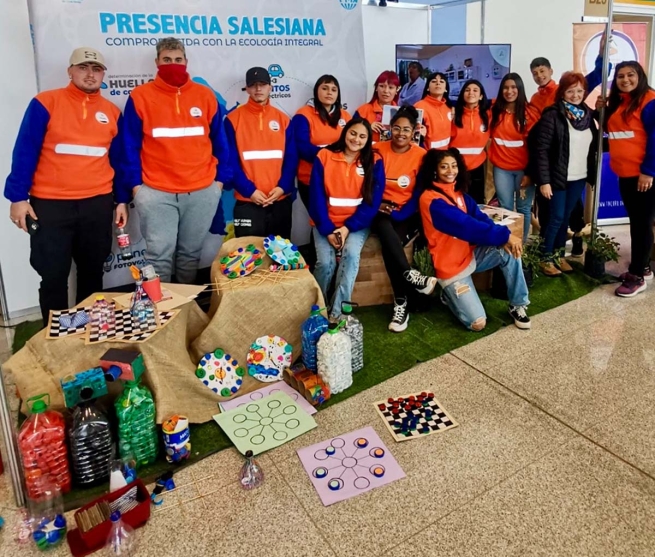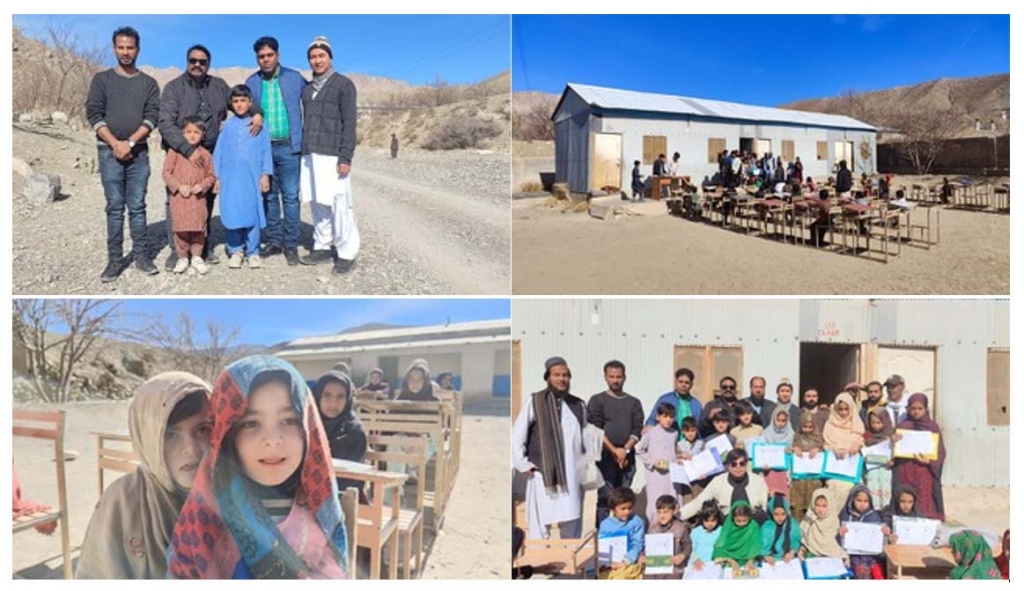SYRIA: Earthquake victims in Aleppo receive continued support

Salesians providing food, offering free technical assistance to assess home damage
(MissionNewswire) Salesian missionaries have been working in Aleppo, Syria*, long before the war started 12 years ago. They have continued their support even in the face of difficulties, challenged even more by the recent 7.8 magnitude earthquake that struck Syria and Turkey.
Salesians have resumed activities for 1,100 youth at the Salesian youth center and stepped up to help those impacted by the earthquake. One Salesian said, “We are trying to return to normalcy, but we are still in waiting mode. People fear another big earthquake and there are thousands of people who still cannot return to their homes.” Salesians are dealing with the emergency, distributing food and fuel vouchers, and offering free technical assistance to monitor structural damage to buildings.
Jamil was sleeping on the 11th floor of his building with his parents and siblings when the earthquake struck. He recounted, “I don’t know how we made it down all the floors, but we made it to safety. It took weeks before we could return home and we stayed with the Salesians. Now, even though we have returned, my father cannot sleep. He had trouble breathing and his heart was pounding, so now he sleeps in a small store where he works.”
The earthquake worsened the health situation in the country, which was already dire due to the war. Cases of cholera, scabies, diarrhea, hepatitis and measles have been detected. Due to a shortage of doctors and infrastructure, the only solution is care at private hospitals, which is inaccessible to most. According to the United Nations, more than 9,000 buildings have collapsed in Syria, and as many are uninhabitable. It has been estimated that 8.8 million people need emergency assistance.
To cope with the trauma, Salesians in Damascus have provided psychosocial support and training for young Salesian volunteers. Mateo Colmenares, a Salesian volunteer in Aleppo, explained, “The initiative has been wonderful for the young people. This was the first time we were all well rested and had slept well after the earthquake. It was also a time for us to recharge our batteries to continue helping those in need during the Holy Week.”
Colmenares noted even though people have left the Salesian center and returned home, Salesians are still supporting them. “In the first weeks of March, all the people hosted by us returned to their homes or to temporary rented housing. Every 20 days, we continue to help by distributing vouchers for food, hygiene products and fuel to 200 families. For those who fear their homes are still unsafe, we have offered qualified engineers to assess the damage so they can receive financial assistance for rehabilitation.”
Salesians also installed solar panels at the Don Bosco House in Aleppo so that they are not dependent on fuel and generators during the 22 hours a day when there is no power. Salesians will initiate another project to provide medical care and support to more than 200 people whose cardiovascular health has deteriorated due to the earthquake and subsequent aftershocks.
These initiatives are being supported by Salesian organizations around the globe. So far, 1.8 million euros have been donated. The Salesian Mission Office in Madrid has provided 400,000 euros earmarked for emergency aid and education in Aleppo, shelter at the Salesian house in Kafroun, installation of solar panels, and reconstruction projects to be implemented in the coming months.
###
Sources:
ANS Photo (usage permissions and guidelines must be requested from ANS)
Salesian Missions – Syria
*Any goods, services or funds provided by Salesian Missions to programs located in this country were administered in compliance with applicable laws and regulations, including sanctions administered by the U.S. Department of Treasury’s Office of Foreign Asset Control.





